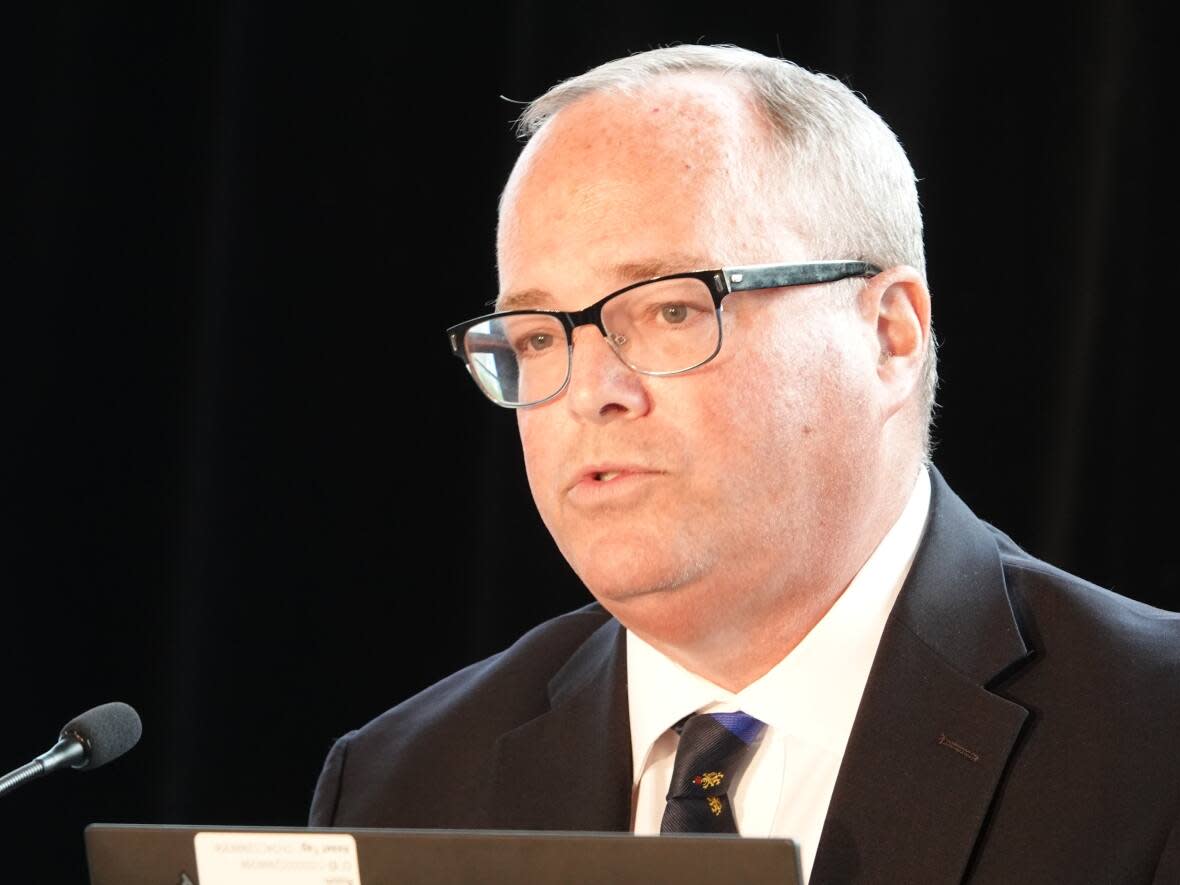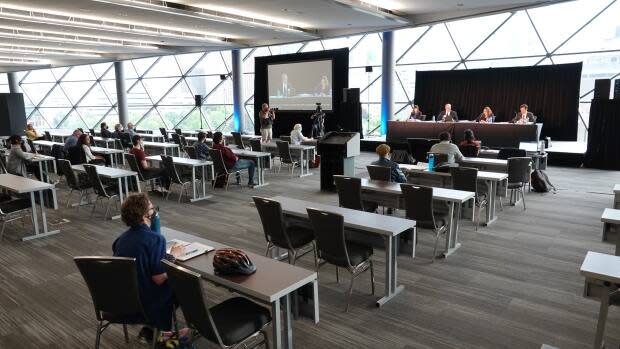Head of public inquiry into Ottawa's LRT promises answers

The commissioner investigating what led to the breakdowns and derailments on Ottawa's light rail system told residents Wednesday night that the upcoming public inquiry is their inquiry.
"We serve you," Justice William Hourigan told a well-spaced group of a few dozen people Wednesday evening at the first of two public meetings being held at Ottawa's Shaw Centre. He encouraged others to share their experiences at the second meeting Thursday or by email.
"We need to understand what went wrong, who did what, and we're going to get those answers for you. Absolutely we are."
The Ottawa light rail commission was established by Ontario's Progressive Conservative government last fall after Ottawa city council voted to ask for an audit of LRT's derailments and other issues instead of seeking a judicial inquiry.
Hourigan, a Court of Appeal justice who specialized in complex commercial litigation while in private practice, has been given a broad mandate to investigate the commercial and technical issues that led to those breakdowns, dating back to the procurement of the Confederation Line more than a decade ago.
He and his three lead counsel told residents the commission had been working non-stop since January and had gathered 1,000,000 documents, ultimately deciding that 10,000 were relevant to the inquiry.
They've also interviewed 90 witnesses, of which 40 have been asked to testify during public hearings that begin June 13.
That list was posted Wednesday, and includes everyone from Mayor Jim Watson and former transportation general manager John Manconi, to executives of Rideau Transit Group, and city decision makers from the era when the Confederation Line contract was approved in 2012.
"We're going to hear from witnesses. They're going to be examined by the lawyers, but that's not a private thing. It's a public thing. It's going to be televised," said Hourigan, who encouraged the public to watch online, or at the University of Ottawa, where the hearings will be streamed from a court room nearby.
Residents provide their experiences
The witnesses might formally give testimony next month, but Hourigan expressed a keen desire to first hear from riders of Ottawa's light rail system.
They experienced many of the Confederation's breakdowns first-hand, especially during its first months of operation when ridership was still high before the pandemic hit. After opening day in September 2019, the train saw flat wheels, cracked wheels, arcing flashes on its overhead electrical system, jammed doors and more.
Then came a pair of derailments in August and September of last year. The second of those incidents saw a train go off its tracks with several people on board, leading to a shutdown of nearly two months. The Transportation Safety Board concluded it was due to incomplete maintenance and a bolt that wasn't properly tightened.

A half dozen people gave statements at the Shaw Centre on Wednesday, although many more had originally signed up.
Evan Saslove described how he was excited to ride a train the day the Confederation Line opened, but within weeks was unable to rely on it to get to class on time at the University of Ottawa. He feels the LRT has been an embarrassment.
"I have been passionate about public transit, advocating for people to invest in and use public transit for as long as I can remember," Saslove told the commission. "So I hope you can understand just how devastating it was for me when I couldn't in good faith encourage others to take the O-Train."
Other speakers Wednesday night suggested there had been secrecy around the LRT and its contract, and felt they had lost faith in local officials.
Ottawa researcher Ken Rubin suggested the city's transit commission take on more oversight, and recommended the City of Ottawa end its 30-year maintenance contract with Rideau Transit Maintenance.
Hourigan said the commission's work will be transparent and residents will see its findings in a final report, which is due at the end of August.


